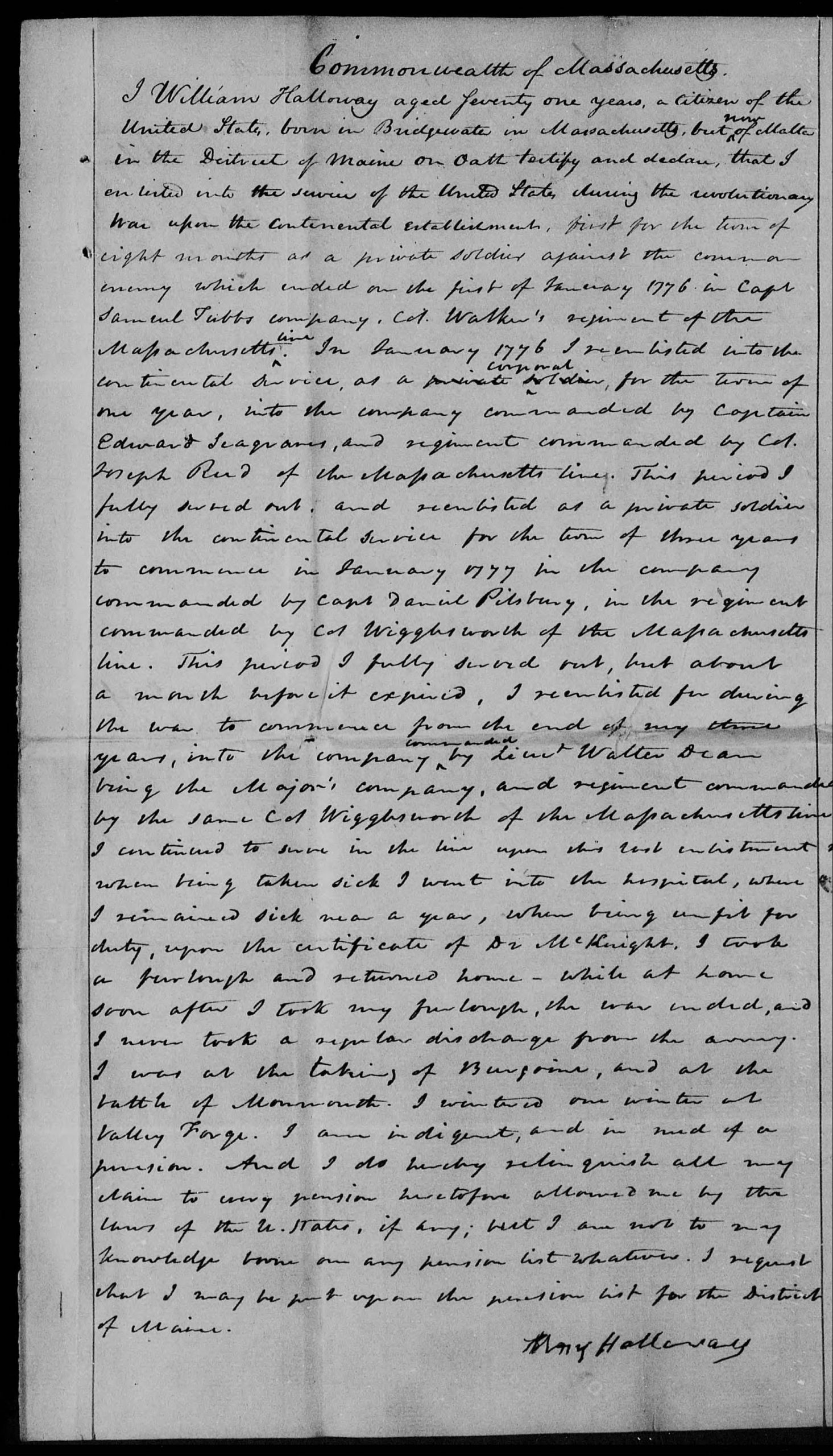According to his pension records, he was present at West Point, fought in the Battles of Saratoga and Monmouth, and suffered through the winter at Valley Forge.
In 1782 he became ill and was put into the hospital, where he was kept for nearly 12 months. Holloway was furloughed by Dr. McKnight in 1783. His first son, Seth, was born the year he left for war. His second child, John, was born seven years later, bespeaking the long absence he endured from his wife and home.
William Holloway’s earliest proven ancestor was also named William Holloway, and was a proprietor and freeman in Plymouth County. He moved to the growing town of Boston in 1650, where he joined the First Church of Dorchester, which funded the first public school in America. In 1649, according to records, he bought a “house and orchard” on what is now Washington Street, between Bedford and Essex Streets, currently the site of the Chinatown subway station. The location was well situated for business purposes, and he set up a shop as a cloth merchant and tailor. His business prospered, and grew even more under the management of his wife, Elizabeth, after his death. In 1653, he appeared as a witness in a lawsuit against one George Bryant, charged with criminal conspiracy for “taking advantage of the simplicity of Sarah Webb,” a maid. So began many generations of civic service.


